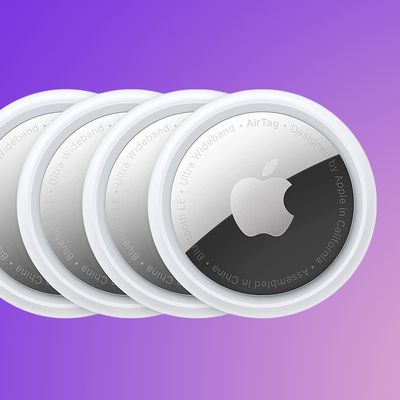Apple's $0.99 FaceTime Charge Due to Accounting Requirements

When Apple released FaceTime 1.0 into the Mac App Store earlier today with a $0.99 price tag, many users were up in arms over the charge for what had been a free application during its beta phase.
As we suspected and has now been confirmed by Macworld's Dan Moren, the charge is due to an accounting requirement that has affected similar updates in the past.
Apple told me that the FaceTime $1 charge for existing Mac users is regulatory related (remember the $2 802.11n patch circa 2007?).
Moren's reference is to the software download that unlocked 802.11n capabilities that were included in certain Macs but not activated at the time of sale.
While it is not clear exactly what types of updates trigger such accounting requirements, Apple has in the past generally stated that adding significant functionality that had not been advertised as included at the time of purchase can require such minimal user payments. While Macs have long included iChat video capabilities similar in many respects to FaceTime, Apple and its accounting advisors clearly believe that a public release of FaceTime software for existing Macs represents a substantial new feature addition for which the company is required to either charge a small fee or restate its past earnings to retroactively delay recognition of a tiny slice of revenue from each past machine sale.
The new FaceTime application is included free of charge on the MacBook Pros released today, as it is an advertised feature on the new hardware, and the application will certainly continue to be free on future versions of Mac hardware.
Popular Stories
Barclays analyst Tom O'Malley and his colleagues recently traveled to Asia to meet with various electronics manufacturers and suppliers. In a research note this week, outlining key takeaways from the trip, the analysts said they have "confirmed" that a fourth-generation iPhone SE with an Apple-designed 5G modem is slated to launch towards the end of the first quarter next year. In line with previo...
Apple released the AirTag in April 2021, so it is now three over and a half years old. While the AirTag has not received any hardware updates since then, a new version of the item tracking accessory is rumored to be in development.
Below, we recap rumors about a second-generation AirTag.
Timing
Apple is aiming to release a new AirTag in mid-2025, according to Bloomberg's Mark Gurman....
While the Logitech MX Master 3 is a terrific mouse for the Mac, reports claiming that Apple CEO Tim Cook prefers that mouse over the Magic Mouse are false.
The Wall Street Journal last month published an interview with Cook, in which he said he uses every Apple product every day. Soon after, The Verge's Wes Davis attempted to replicate using every Apple product in a single day. During that...
Apple today released iOS 18.1.1 and iPadOS 18.1.1, minor updates to the iOS 18 and iPadOS 18 operating systems that debuted earlier in September. iOS 18.1.1 and iPadOS 18.1.1 come three weeks after the launch of iOS 18.1.
The new software can be downloaded on eligible iPhones and iPads over-the-air by going to Settings > General > Software Update. Apple has also released iOS 17.7.2 for...
AT&T has begun displaying "Turbo" in the iPhone carrier label for customers subscribed to its premium network prioritization service, according to reports on Reddit. The new indicator seems to have started appearing after users updated to iOS 18.1.1, but that could be just coincidence.
Image credit: Reddit user No_Highlight7476
The Turbo feature provides enhanced network performance through ...
In a research note with Hong Kong-based investment bank Haitong today, obtained by MacRumors, Apple analyst Jeff Pu said he agrees with a recent rumor claiming that the so-called "iPhone 17 Air" will be around 6mm thick.
"We agreed with the recent chatter of an 6mm thickness ultra-slim design of the iPhone 17 Slim model," he wrote.
If that measurement proves to be accurate, there would be ...
The iOS 18.1.1, iPadOS 18.1.1, and macOS Sequoia 15.1.1 updates that Apple released today address JavaScriptCore and WebKit vulnerabilities that Apple says have been actively exploited on some devices.
With the JavaScriptCore vulnerability, processing maliciously crafted web content could lead to arbitrary code execution. The WebKit vulnerability had the same issue with maliciously crafted...
























